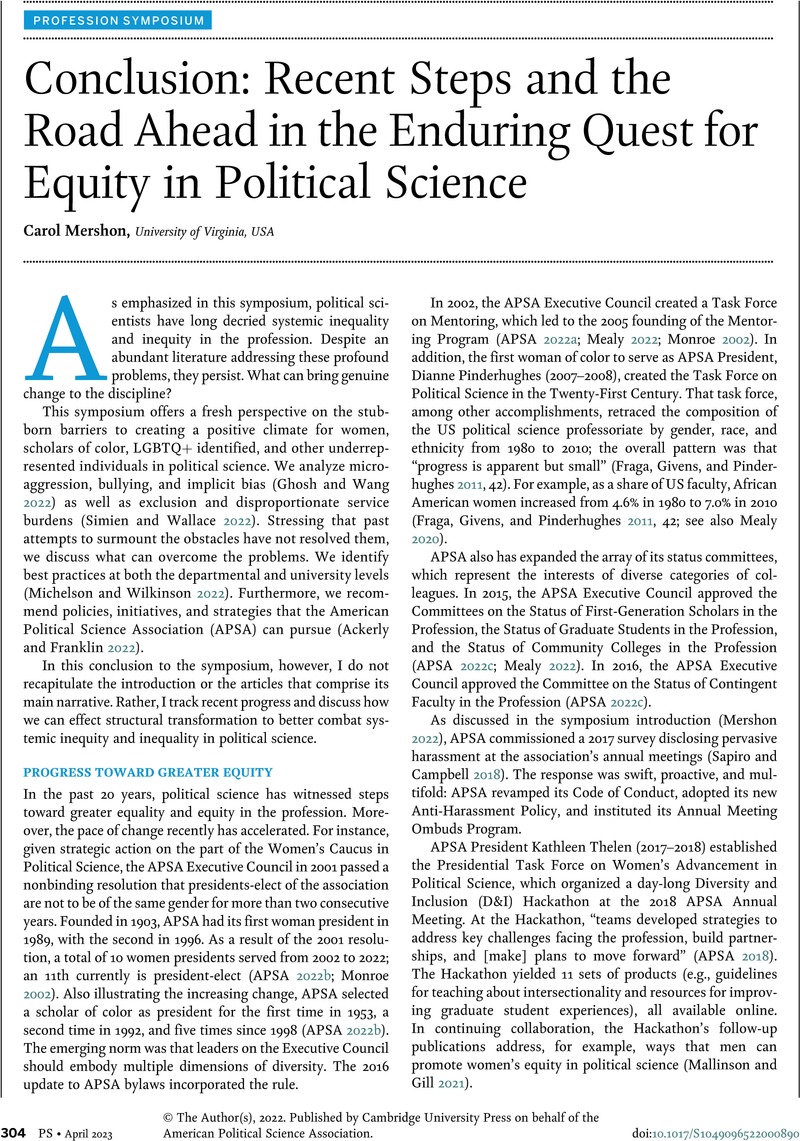Article contents
Conclusion: Recent Steps and the Road Ahead in the Enduring Quest for Equity in Political Science
Published online by Cambridge University Press: 25 November 2022
Abstract

- Type
- The Enduring Quest for Equity in Political Science: The Climate and Context for Women and Scholars of Color in the Era of Black Lives Matter and COVID-19
- Information
- Copyright
- © The Author(s), 2022. Published by Cambridge University Press on behalf of the American Political Science Association
References
REFERENCES
- 2
- Cited by


